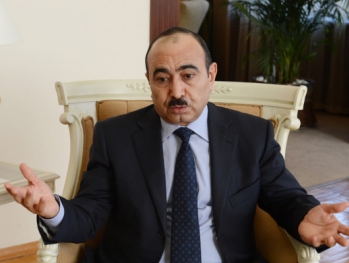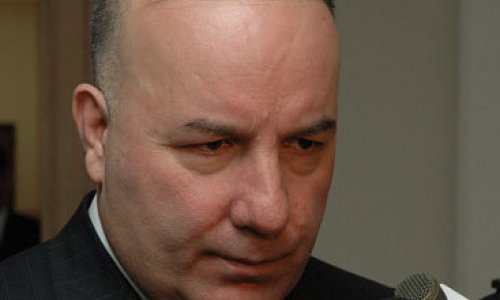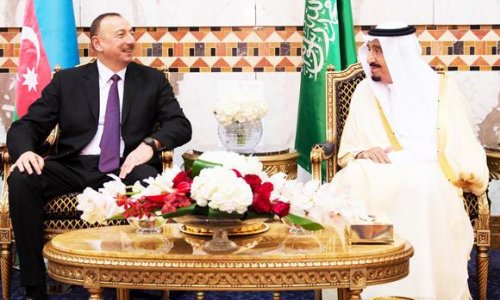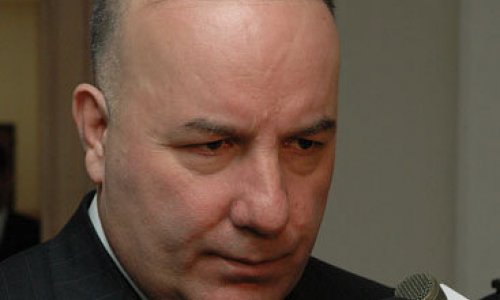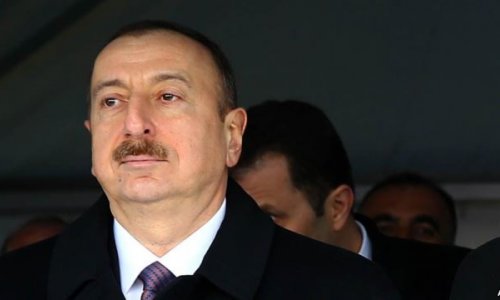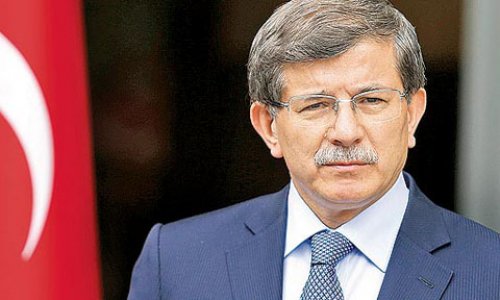Azerbaijan rejected U.S. criticism of its crackdown on civil society and media and denounced what it calls efforts to sow strife in countries under the guise of promoting democracy.
"As a modern Muslim nation striding on the path of democracy, Azerbaijan wants to be accepted as it is and not the way others would want it to look,” Ali Hasanov, head of the political department at President Ilham Aliyev’s office, said in an interview with Bloomberg News. "Azerbaijan has never bowed to pressure or threats. It never will.”
The rift is adding to strains between the U.S. and some former Soviet republics as a grinding conflict in Ukraine and angst over Russian expansionism revive security concerns in the region. Russia has courted the Azeri leadership even as U.S. President Barack Obama in September singled out the country as a place where "laws make it incredibly difficult for NGOs even to operate.”
Relations between the U.S. and the Caspian Sea nation have been on the rocks in the past several months as the Azeri government arrested opposition activists, lawyers and journalists using what Amnesty International and Human Rights Watch have described as bogus charges to silence dissent. The former Soviet Union’s third-biggest oil producer provides the only westward route for central Asian crude that bypasses Russia via a U.S.-backed pipeline.
"Relationships cannot be based on someone else’s desire to dominate us,” Hasanov said. "Azerbaijan is not a satellite country or a foreign outpost. The sooner people understand this, the easier it will be for them to be our friends.”
Hasanov said Azerbaijan was the first country to open the Caspian region to western investment, "ensuring that U.S. and European oil giants participate in the production and export of Caspian hydrocarbons.”
Azerbaijan signed $45 billion of contracts with a BP Plc-led group in December 2013 to deliver natural gas to Europe starting in 2019 through pipelines to be built across Georgia, Turkey and Greece.
The recent tensions with the U.S. mark a change for Azerbaijan.
Former President Heydar Aliyev, the father of the current leader, was one of the first to condemn the Sept. 11 terrorist attacks on the U.S. and sent Azeri troops to serve alongside U.S. forces in Kosovo, Iraq and Afghanistan, Hasanov said.
President Ilham Aliyev continued his late father’s policy after taking office after elections in 2003. The U.S. relied on Azerbaijan for a third of its non-lethal shipments to Afghanistan.
That hasn’t stopped "some international forces” from attempting to stage unrest in Azerbaijan similar to popular uprisings that toppled regimes in the former communist countries of eastern Europe, ex-Soviet republics and the Middle East, Hasanov said.
Even so, there’s "great potential” for Azerbaijan and the U.S. to expand their relationship, he said.
"We are confident that attempts by some circles in the U.S. and Europe to damage these relations will fail,” Hasanov said. "President Obama and other senior U.S. officials have said they attach great importance to the expansion of ties with Azerbaijan. They expressed the desire to work with the current president, Ilham Aliyev, and his government for this end. We believe in their sincerity.”
ANN.Az
Follow us !

